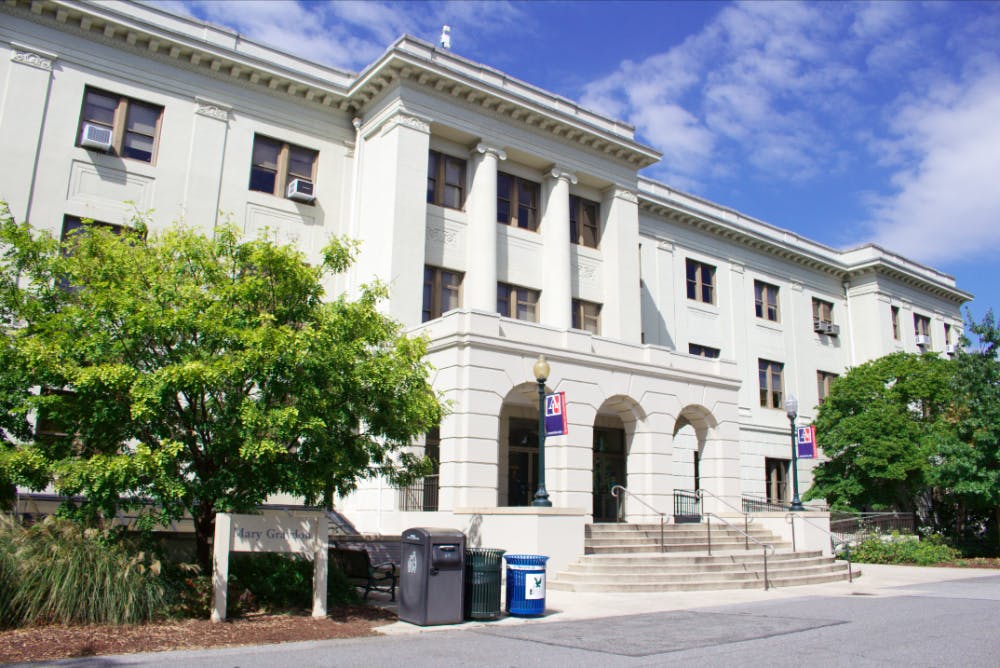Update: This is an updated version of an article originally published on Oct. 1.
Lawyers for three students suing American University for tuition and fee refunds from the online portion of the spring semester asked a judge for the U.S. District Court for the District of Columbia to deny AU’s Sept. 30 motion to dismiss.
The students’ lawyers argued in a memorandum filed Wednesday that a contract between a university and its students includes what is represented in catalogues, bulletins and other enrollment and marketing materials, not just what is included in the enrollment contract itself.
The lawsuit partially hinges on the question of whether the University failed to provide the full educational experience promised after going online in the middle of the spring semester due to the coronavirus pandemic. Lawyers for AU argued in their motion to dismiss that the students’ lawyers did not “identify the contract or provision” that they allege the University breached.
However, Wednesday’s memorandum opposing the motion to dismiss argues that context is vital: AU indicates that in-person instruction is a core component of students’ experience on its website and elsewhere, the lawyers allege, and therefore the University breached its contract. In addition, they pushed back against AU’s argument that D.C. law exempts courts from assessing the quality of the University’s education, because the lawsuit is based partially on the commercial portions of the University, not just its education.
“Plaintiffs and the putative class collectively paid millions of dollars to Defendant to purchase an on-campus educational experience with multiple benefits, services, experiences, and opportunities,” the memorandum reads. “But once the switch to remote learning occurred, Plaintiffs were denied that experience for which they bargained and paid, including interaction with other students, the use of Defendant’s infrastructure, buildings, libraries, labs, computers, etc. in the particular student’s chosen discipline.”
For example, the memorandum cites AU’s spring 2020 course registration page, which gives students the option of where they plan to enroll — AU or the Washington College of Law — as an indication that in-person classes were a vital part of the contract.
None of the plaintiffs’ lawyers immediately responded to a request for comment.
In an email to The Eagle, AU spokesperson Stacie Burgess wrote that the University does not comment on pending litigation.
____________________________________________________________________________
Lawyers for American University moved to dismiss a joint lawsuit from students seeking tuition and fee refunds from the online portion of the spring 2020 semester.
AU argued in a court filing Wednesday that the lawsuit doesn’t identify a condition under which the University promised to provide in-person education.
AU’s lawyers argued that the lawsuits hinge on the allegation that AU failed to provide education that was as high quality as the promised in-person education students would have otherwise received, had the pandemic not forced AU to go fully online halfway through the semester. However, the lawyers allege that AU never promised to provide in-person classes under all circumstances and never claimed a link between those classes and the payment of tuition.
“[AU’s] agreements with its students make clear that fees are nonrefundable and that tuition is not refundable based on how students are taught or their satisfaction with their courses,” the filing states.
AU’s lawyers also argued that in order to rule on this case, the U.S. District Court for the District of Columbia would need to assess the quality of education AU provides. Such actions are outside the jurisdiction of the court, as D.C. law outlines that educational decisions must be left up to educators themselves, the lawyers allege.
“American stands behind its decisions to protect its students and to continue their education under uniquely challenging circumstances, and the University is proud of the extraordinary efforts its faculty and staff took to ensure that students experienced as little disruption to their educations as possible,” the filing states.
The motion to dismiss comes months after three students — Maaz Qureshi, Danish Arif and Matthew Rabinowitz — separately filed class-action lawsuits against AU. Each lawsuit argued that the transition to online classes in the spring semester, due to the coronavirus pandemic, deprived them of education and other activities that were guaranteed in the University’s contract. The lawsuits have since been combined.
Their lawsuits alleged that because students never agreed to online education when they signed contracts with AU, they and all other students who paid spring tuition are entitled to refunds for educational services and other expenses. Between mid-March, when colleges across the U.S. moved classes online, and late May, more than 100 similar lawsuits were filed by students against universities, according to an article from MarketWatch.
Although AU discounted fall 2020 tuition by 10 percent when classes were moved fully online in July, tuition for the spring 2020 semester totalled $24,535 for full-time undergraduate students taking fewer than 18 credits.
In an email to The Eagle, AU spokesperson Stacie Burgess wrote that the University does not comment on pending litigation.
“AU’s Community Cares Tuition Discount was instituted as a response to the COVID-19 pandemic and the resultant economic hardship that has affected so many of our students and their families,” Burgess wrote.
Burgess added that online classes fulfill the same experience as in-person ones, all featuring expert faculty. AU offers more than 500 classes a year online, Burgess wrote, which are all equivalent to their in-person counterparts and sport the same requirements.
The plaintiffs’ lawyers did not respond to a request for comment.





